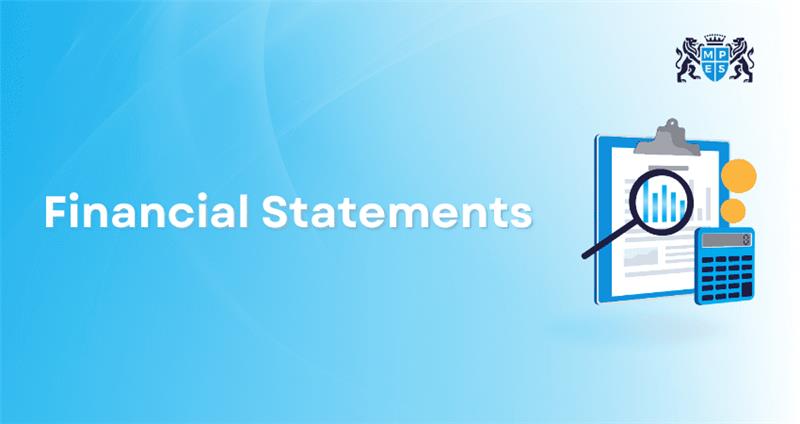Learning Options
- Online Video-Based Learning
- Flexible Schedule
- Expert Trainers with Industry Experience
- High Pass Rates
- 24/7 Personalised Support
- Interactive Learning Materials
Overview
The Advanced Data Analytics Course is designed for professionals looking to elevate their data analysis capabilities and leverage advanced techniques to drive business insights. In today’s data-driven world, the ability to analyse complex datasets and extract valuable insights is crucial for making informed decisions and fostering business growth. This course provides learners with the advanced tools and methodologies required to work with large, intricate data sets, transforming raw data into actionable business intelligence.
Covering key areas such as data visualisation, predictive analytics, and machine learning, this course equips delegates with the expertise to apply analytical methods to solve complex problems, optimise processes, and forecast future trends. Learners will explore advanced statistical techniques, data mining methods, and the latest tools for creating compelling, data-driven stories. By mastering these skills, professionals will be able to enhance their decision-making, improve business outcomes, and lead their organisations through data-driven transformations.
This 4-Days course by MPES offers an engaging, practical learning experience, incorporating case studies and practical exercises to help delegates apply concepts in real-world scenarios. It is ideal for individuals who want to harness the power of advanced analytics to unlock new opportunities and drive strategic initiatives within their organisations.
Course Objectives
- Master advanced data analytics principles and best practices
- Develop expertise in statistical techniques for complex data analysis
- Learn data visualisation tools to create impactful reports
- Apply machine learning algorithms for predictions and pattern discovery
- Understand big data and how to manage large-scale datasets
- Explore advanced data mining to derive insights from unstructured data
- Enhance data storytelling to effectively communicate with non-technical audiences
- Improve decision-making with predictive analytics and modelling
Upon completion, delegates will possess the confidence and expertise to apply advanced data analytics techniques in any business context. This will enable them to optimise operations, forecast trends, and drive data-informed decisions, positioning themselves as key contributors to organisational success.

Average completion time
4 Month
with unlimited support
100% online
Start anytime
Study At Your Own PaceCourse Includes
Course Details
Develop your understanding of essential financial, business and management accounting techniques with ACCA Applied Knowledge. You'll learn basic business and management principles and the skills required of an accountant working in business.
Entry Requirements
Professional Background: No prior experience in data analytics is required; however, a basic understanding of statistics, data analysis, and familiarity with business processes will help maximise the learning experience.
Language Proficiency: Learners must have a strong command of English, as all course content, discussions, and assessments are delivered in English.
Interest in Data Analytics: The course is ideal for professionals looking to deepen their data analysis skills to drive business strategy, optimise performance, and enhance decision-making through data.
MPES Support That Helps You Succeed
At MPES, we offer comprehensive support to help you succeed in your studies. With expert guidance and valuable resources, we help you stay on track throughout your course.
- MPES Learning offers dedicated support to help you succeed in Accounting and Finance courses.
- Get expert guidance from tutors available online to assist with your studies.
- Check your eligibility for exemptions with the relevant professional body before starting.
- Our supportive team is here to offer study advice and support throughout your course.
- Access a range of materials to help enhance your learning experience. These resources include practice exercises and additional reading to support your progress.
Career Growth Stories
Discover how MPES Learning transforms careers with real success stories.

George Evans

The Financial Risk Management Course at MPES was invaluable in deepening my understanding of risk assessment and mitigation strategies. The hands-on learning approach allowed me to apply new concepts directly to my work. I highly recommend it for professionals in finance.
George Evans
James Robinson

As a financial consultant, I am always seeking ways to enhance my expertise. The Investment Analysis Course at MPES exceeded my expectations, offering practical skills and knowledge that I can apply immediately in my consulting work. It's an outstanding choice for professionals in finance.
James Robinson
Laura Bennett

The Corporate Finance Course I attended at MPES was transformative. The depth of knowledge shared by the instructors and the relevance of the topics covered have directly impacted on our financial strategy. I strongly endorse this program for anyone in a leadership position in finance.
Laura Bennett
Emma Johnson

The Financial Modeling and Valuation Course at MPES was incredibly insightful. The practical applications and real-world examples helped solidify my understanding of complex concepts. I highly recommend this course to anyone looking to enhance their financial acumen.
Emma Johnson
Arvy Pasanting

As a qualified accountant, studying at MPES has been a very rewarding experience. Its team of passionate and dedicated mentors gave me the confidence and knowledge I needed to not just excel at my current role as an auditor, but also inspired me to expand my horizons.
Arvy Pasanting
David Ford

I was recommended MPES after searching for a way to pursue a career in the accounting profession, I have studied with them throughout my journey utilising both their “in class” and online learning opportunities that fit around the needs of my employer, I have found them to be consummate professionals delivering first class accounting courses with support always available.
David Ford
Aaron Allcote

As a finance officer, MPES has been a huge help in understanding the process of recording and processing transactions from all different perspectives. The courses are very easy to follow, and the training they provide can be applied to real-life scenarios. The courses have been a huge help for me, and I would highly recommend them.
Aaron Allcote
Bob Beaumont

I completed all of my ACA studies with MPES and I think you would struggle to find a better training provider anywhere in the British Isles. MPES' tutors are excellent both at delivering training and giving individualised feedback and coaching. the supporting materials and the out of class support are also great.
Bob Beaumont
George Evans

The Financial Risk Management Course at MPES was invaluable in deepening my understanding of risk assessment and mitigation strategies. The hands-on learning approach allowed me to apply new concepts directly to my work. I highly recommend it for professionals in finance.
George Evans
James Robinson

As a financial consultant, I am always seeking ways to enhance my expertise. The Investment Analysis Course at MPES exceeded my expectations, offering practical skills and knowledge that I can apply immediately in my consulting work. It's an outstanding choice for professionals in finance.
James Robinson
Laura Bennett

The Corporate Finance Course I attended at MPES was transformative. The depth of knowledge shared by the instructors and the relevance of the topics covered have directly impacted on our financial strategy. I strongly endorse this program for anyone in a leadership position in finance.
Laura Bennett
Emma Johnson

The Financial Modeling and Valuation Course at MPES was incredibly insightful. The practical applications and real-world examples helped solidify my understanding of complex concepts. I highly recommend this course to anyone looking to enhance their financial acumen.
Emma Johnson
Arvy Pasanting

As a qualified accountant, studying at MPES has been a very rewarding experience. Its team of passionate and dedicated mentors gave me the confidence and knowledge I needed to not just excel at my current role as an auditor, but also inspired me to expand my horizons.
Arvy Pasanting
David Ford

I was recommended MPES after searching for a way to pursue a career in the accounting profession, I have studied with them throughout my journey utilising both their “in class” and online learning opportunities that fit around the needs of my employer, I have found them to be consummate professionals delivering first class accounting courses with support always available.
David Ford
Aaron Allcote

As a finance officer, MPES has been a huge help in understanding the process of recording and processing transactions from all different perspectives. The courses are very easy to follow, and the training they provide can be applied to real-life scenarios. The courses have been a huge help for me, and I would highly recommend them.
Aaron Allcote
Bob Beaumont

I completed all of my ACA studies with MPES and I think you would struggle to find a better training provider anywhere in the British Isles. MPES' tutors are excellent both at delivering training and giving individualised feedback and coaching. the supporting materials and the out of class support are also great.
Bob BeaumontHave Questions? We’ve Got You
If you have any questions, we’re here to help. Find the answers you need in the MPES detailed FAQ section.
Q. What is the primary focus of the Advanced Data Analytics Course?
This course is designed to equip professionals with advanced data analysis techniques, enabling them to derive actionable insights from complex datasets. It focuses on developing expertise in statistical analysis, predictive modelling, and data visualisation, helping learners to make data-driven decisions and solve business challenges effectively.
Q. What will I learn during the training?
Delegates will gain practical experience in advanced data analytics tools and techniques, including regression analysis, machine learning algorithms, and data visualisation best practices. The training also covers data cleansing, advanced statistical modelling, and how to interpret and communicate data insights clearly to stakeholders.
Q. Who is this course intended for?
This course is ideal for Data Analysts, Business Analysts, and professionals involved in decision-making who wish to advance their data analytics skills. It is also suitable for anyone looking to leverage data more effectively within their organisation to drive business strategy and improve performance.
Q. Will this training provide experience with analytics tools?
Yes, the course includes practical sessions using industry-leading data analytics software, allowing delegates to apply their learning through case studies, real-world datasets, and hands-on exercises. Learners will have the opportunity to work with tools like Python, R, SQL, and Tableau, gaining experience in tools commonly used in the industry.
Q. How does this course benefit my career in data analytics?
This training enhances professionals' ability to analyse large datasets, extract meaningful insights, and provide recommendations that influence business strategies. By mastering advanced analytics techniques, delegates can significantly boost their career prospects, positioning themselves as data-driven decision-makers and valuable assets to their organisations.
Related Courses
Explore additional courses designed to complement your learning journey and enhance your professional skills. Expand your knowledge with these expertly curated options tailored to your career goals.



Resources
Access a wide range of free resources to support your learning journey. From blogs to news and podcasts, these valuable guides are available at no cost to help you succeed.

Freelancing vs Full-Time Employment: Choosing the Right Career Path
Maria Thompson25-Apr-2025

What is Financial Reporting: Types, Importance and Uses Explained
Maria Thompson21-Apr-2025

Asset Disposal: Definition, Types, Methods and Examples Explained
Maria Thompson16-Apr-2025

Allowable and Disallowable Expenses in the UK: Explained in Detail
Maria Thompson09-Apr-2025

What is Human Resource Management (HRM)? Principles and Functions
Maria Thompson08-Apr-2025

Navigating Career Transitions with the 10 Steps Framework Guide
Maria Thompson28-Mar-2025

Top 15 IT Soft Skills Every Tech Professional Should Have in 2025
Maria Thompson05-Mar-2025

Trade Payables: Definition, Benefits, Tips, and Examples for Business
Maria Thompson03-Mar-2025

What is Goodwill in Accounting? Importance, Types, and Examples
Maria Thompson11-Feb-2025

Audit vs. Assurance: Definitions, Key Differences & Similarities
Maria Thompson03-Feb-2025

What is DeepSeek R1 Model, and How it Ranks Against OpenAI's o1?
Maria Thompson31-Jan-2025

What Is Cash Basis Accounting? Definition, Example and New Updates
Maria Thompson29-Jan-2025

Corporate Tax Planning: Definition, Types, Strategies, and Benefits
Maria Thompson27-Jan-2025

The Power of Resilience: Strategies to Develop Your Inner Strength
Maria Thompson23-Jan-2025

Financial Accounting vs Management Accounting: What's the Difference?
Maria Thompson22-Jan-2025

What is Corporation Tax: Deductions, Benefits, and How It Works
Maria Thompson20-Jan-2025

Role of Mentorship in Career Development: A Catalyst for Success
Maria Thompson16-Jan-2025

15 Reasons You Should Invest in Professional Development: Explained
Maria Thompson03-Jan-2025

What is Corporate Governance: Principles, Importance, and Examples
Maria Thompson23-Dec-2024

What Is Management Accounting? Types and Key Functions Explained
Maria Thompson18-Dec-2024

Accounting Secrets to Effective Budgeting: Proven Strategies for Creating Effective Budgets
Maria Thompson16-Dec-2024

Financial Accounting in a Remote Work Era: Adapting Key Practices
Maria Thompson12-Dec-2024

Future-ready Accountants: Top Certifications to Bridge Skills Gaps in 2025
Maria Thompson04-Dec-2024
 Have Any Question?
Have Any Question? info@mpeslearning.com
info@mpeslearning.com  +44 7452 122728
+44 7452 122728






 Back
Back











































